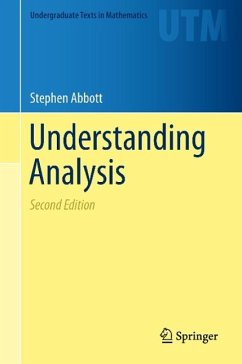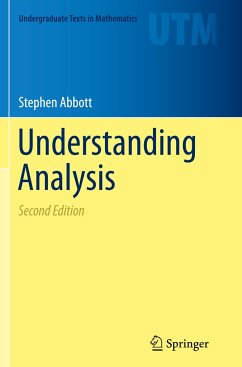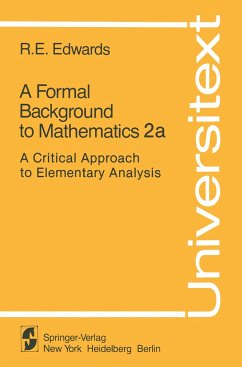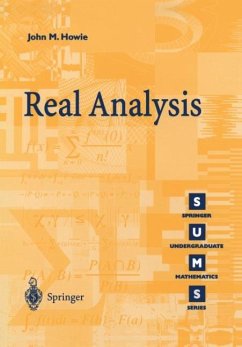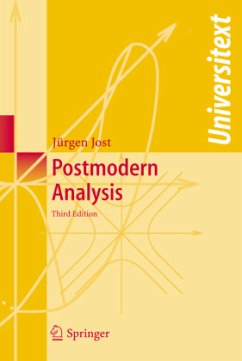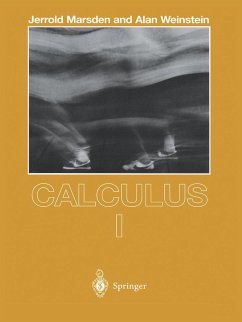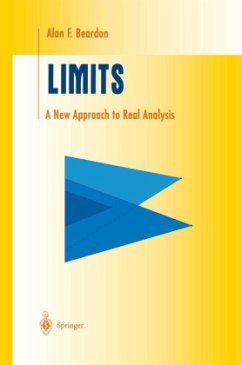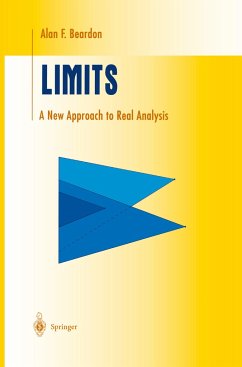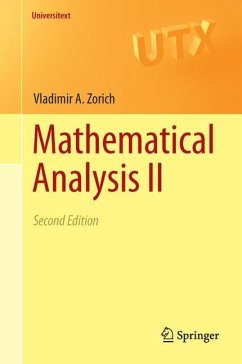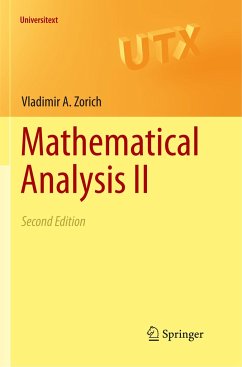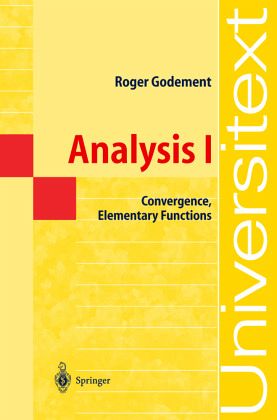
Analysis I
Convergence, Elementary functions
Übersetzung: Spain, P.

PAYBACK Punkte
27 °P sammeln!
Functions in R and C, including the theory of Fourier series, Fourier integrals and part of that of holomorphic functions, form the focal topic of these two volumes. Based on a course given by the author to large audiences at Paris VII University for many years, the exposition proceeds somewhat nonlinearly, blending rigorous mathematics skilfully with didactical and historical considerations. It sets out to illustrate the variety of possible approaches to the main results, in order to initiate the reader to methods, the underlying reasoning, and fundamental ideas. It is suitable for both teaching and self-study. In his familiar, personal style, the author emphasizes ideas over calculations and, avoiding the condensed style frequently found in textbooks, explains these ideas without parsimony of words. The French edition in four volumes, published from 1998, has met with resounding success: the first two volumes are now available in English. TOC:Preface.- Sets and Functions: Set Theory; The Logic of Logicians.- Convergence: Discrete variables: Convergent sequences and series; Absolutely convergent series; First concepts of analytic functions.- Convergence: Continuous variables: The intermediate value theorem; Uniform convergence; Bolzano-Weierstrass and Cauchy's criterion; Differentiable functions; Differentiable functions of several variables.- Powers, Exponentials, Logarithms, Trigonometric Functions: Direct construction; Series expansion; Infinite products; The topology of the functions arg(z) and Log z.- Index.





